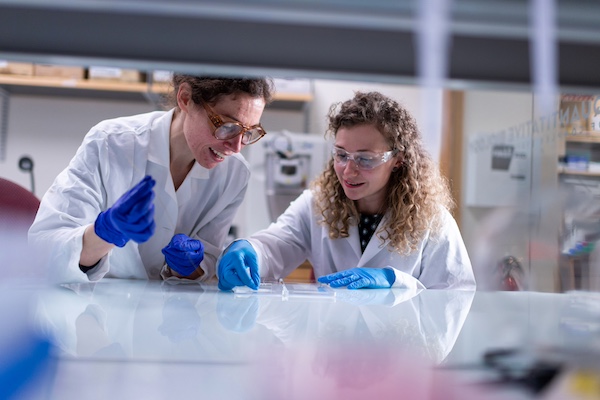Morgridge virologists have outlined in atomic detail the intricate RNA replication machines that coronaviruses create inside infected cells, giving rise to potential new strategies to fight disease.
Author: Brian Mattmiller
High-throughput computing: Fostering data science without limits
HTCondor is gaining adherents across UW because scientists are learning that it is more than someone asking, “What technology do you need?” Research computing is a collaboration, and the people HTC brings to the equation are more important than the technology.
Metabolism research has morphed from mundane to essential
At a meeting of the Wisconsin Tech Council, Morgridge scientists described the renaissance taking place in metabolism research, which is revealing newfound connections to disease and entirely new roads to treatment and prevention.
A research partnership brings gene editing promise to eye disease
One of the first frontiers of CRISPR gene editing is targeting diseases related to the eye. A diverse Morgridge and UW–Madison team is working to make future applications precise, safe and reproducible.
New Morgridge investigator explores role of diet and metabolism in stem cell function
Daniela Drummond-Barbosa, the Morgridge Institute’s newest investigator, uses the model organism Drosophila to better understand the genetic drivers of stem cell disorders, obesity, infertility and a variety of diseases associated with metabolism.
